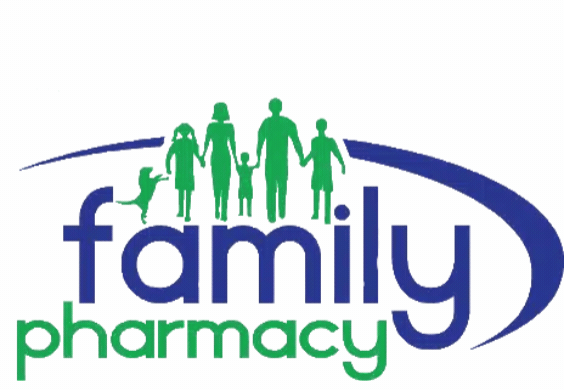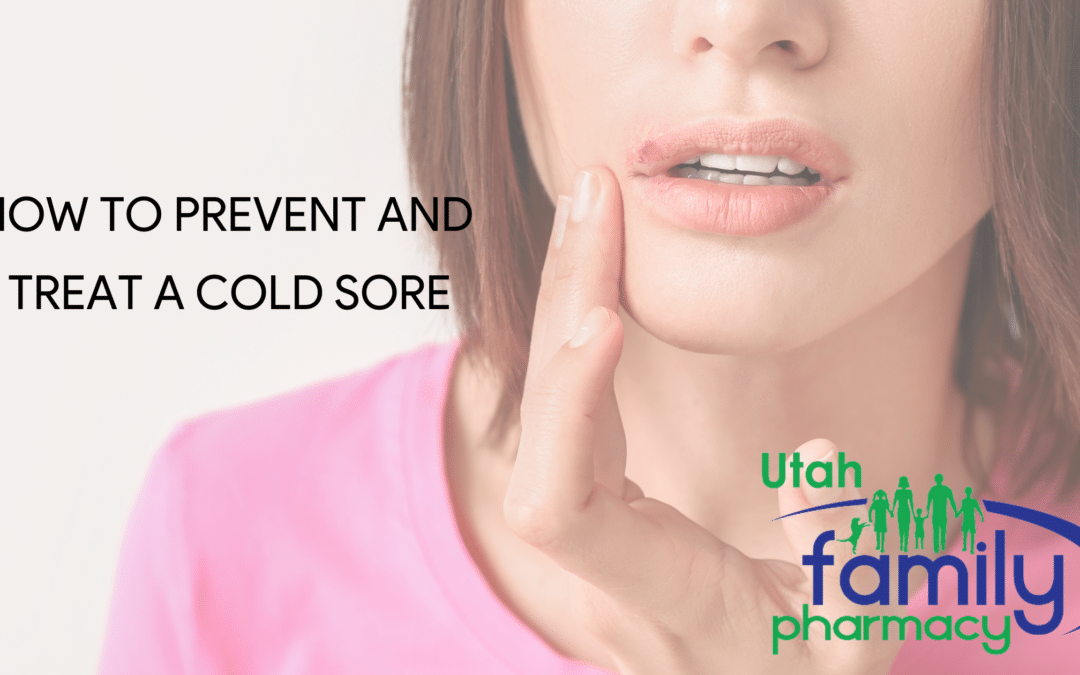Discussing cold sores may be a difficult topic, especially when it comes to how to prevent and treat a cold sore. With a lot of different information circling about them, it’s important to know what’s true and what isn’t.
At Utah Family Pharmacy, we want to clear up any false connotations about the proper ways to both prevent and treat a cold sore. We have solutions for both cold sore prevention and cold sore treatment. Neither of which require a visit to the doctor’s office, or a prescription.
By having known solutions for cold sore flare ups, we want to help lower the stigma around those who suffer from them. Let’s go over everything you need to know about how to prevent and treat a cold sore!
Cold Sores Explained
Before we get into cold sore prevention and treatment, we should properly go over exactly what a cold sore is.
A cold sore is best described as a small, fluid filled blister that appears near the mouth area, or lips. Cold sores aren’t exactly the nicest thing to see, but are potentially harmless and also very common.
Cold sores infect around 4 billion people worldwide.
When someone gets a cold sore, it’s because there’s a virus overtaking healthy cells and attacking them. This virus that causes cold sores is not only very contagious, but there’s currently no cure for it.
The virus that causes cold sores is called the herpes simplex virus (HSV-1). Once this virus is contracted, cold sores can become recurrent and at times one won’t even show symptoms.
It’s possible to have contracted the virus and not show any symptoms until it becomes active. That means cold sore outbreaks begin to develop.
There are several possible triggers to an outbreak, some of the most common include:
- Common Colds
- Flu/Fever
- Stress
- Fatigue
- Sun/Wind Exposure
Some people, however, may carry the virus without ever showing symptoms – in other words, they never have a cold sore – and so may pass the virus on to others unknowingly.
How to Prevent a Cold Sore Before it Starts
A cold sore can start as a slight itching, tingling, or burning sensation near the lips. Which will usually then turn into a red/inflamed area, from where the cold sore blister then forms.
From that point, a cold sore will usually open and xpel clear liquid before eventually drying out and scabbing over. Similar to any other wound on the skin, it will eventually heal and the area will go back to looking normal. Though the virus is there to stay.
It’s most common for people to have cold sores appear on their lips, but it’s not impossible to have them show on the nose, eye, or genital area.
When people get cold sores, they often confuse them with having a canker sore. This is incorrect, as canker sores can only happen inside the mouth. In places such as:
- Your Gums
- Inner Lips
- Tongue
Cold sores are the ones that can only appear on the outer edges of the lips, or on the lips themselves.
Preventing the Spread of a Cold Sore
The HSV-1 virus, or the virus that causes cold sores, is spread to others and infects them through touch. The most common form being kissing as the virus is most easily passed through direct lip contact and saliva.
The virus may also be contracted by sharing items touched by saliva of the infected person. Such as:
- Eating Utensils
- Cosmetic Tools
- Sharing Drinks
- Sharing Lip Products
It’s important to stay cautious as some infected may not be aware without showing symptoms.
Cold sores are highly contagious. As direct contact through something as kissing causes most infection, it can easily be transferred other ways.
Someone can become infected with the virus by touching things alone. That can even mean putting your fingers near your mouth or eyes after you’ve touched a person who has the virus.
The cold sore virus does not however pass through the air, but has been proven to survive on hard surfaces and risk infection to others.
To prevent contraction from another person, it’s important to practice methods to protect yourself:
- Follow correct hand-washing. Wash with soap and water for at least 20 seconds and use hand sanitizer when needed.
- Avoid close contact with the infected. Those with visible signs of the virus shouldn’t touch others personally and never touch your mouth, eyes, or nose around them.
Doing these small practices can help protect you from contracting the virus, or passing it on to others.
How to Treat a Cold Sore
When a cold sore appears, it’s known to heal completely within 10-14 days. Though if you use a prescription cream that time can be reduced substantially.
When learning how to properly treat a cold sore, it’s a good idea to take in all of the facts and then use them to find the treatment that works best for you.
There’s so much information out there about treatment options. From home remedies, to overnight cures. You must figure out the best option that will shorten your healing time and allow your cold sore to heal properly.
Though cold sores do eventually heal and go away naturally after up to four weeks, there are great options for speeding up that healing process. Including multiple options for prescription antiviral medications.
As a cold sore is brought on by a virus, an antiviral medication is needed to treat them quicker. Your pharmacist may be able to prescribe medication right away.
How to Prevent and Treat a Cold Sore with Utah Family Pharmacy
If you want to learn how to properly prevent and treat a cold sore, you should look into Utah Family Pharmacy preventative treatments and cold sore prescription treatments.
Our Pharmacists are a great source of information for patients struggling with cold sores. Patients who suffer from them frequently rely on pharmacists for treatment and advice on OTC medications, or prescription cold sore treatment/prevention.
Patients who experience symptoms of cold sores such as: tingling, pain, blisters, etc. know what those signs mean and should contact their pharmacy right away for treatment.
Our treatment options include OTC, prescription medications, antiviral agents, or other preventative treatments. They should be started as soon as possible, or when symptoms begin for the best outcome of effectiveness.
Our Cold Sore Treatment and Prevention Options
At Utah Family Pharmacy, we provide not only treatment for cold sores, but also prevention. Preventing the spread of the virus will slow the volume of cold sore outbreaks and reduce the risk of infecting others.
Educating yourself on the causes, contagion level and proper treatment is important! That’s why we want to help. If you are experiencing the symptoms of a cold sore, it is important that you take the proper precautions to avoid spreading the virus to others, or to other parts of your body.
Contact one of our three locations today and receive preventative medication and treatment for those suffering from the cold sore virus. Ask your pharmacist now about the best treatment option for you.


Recent Comments